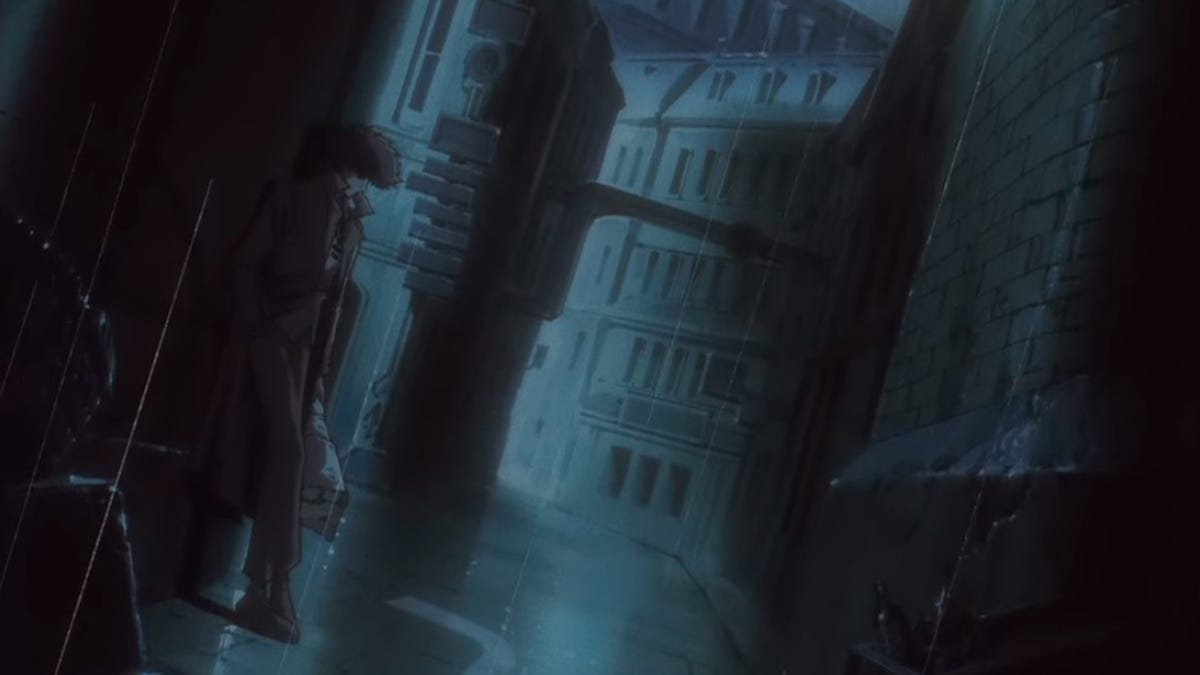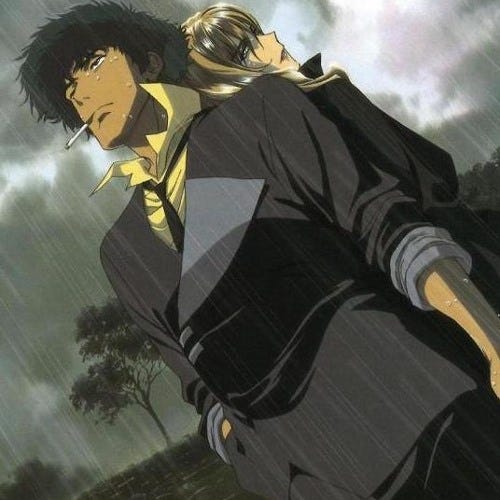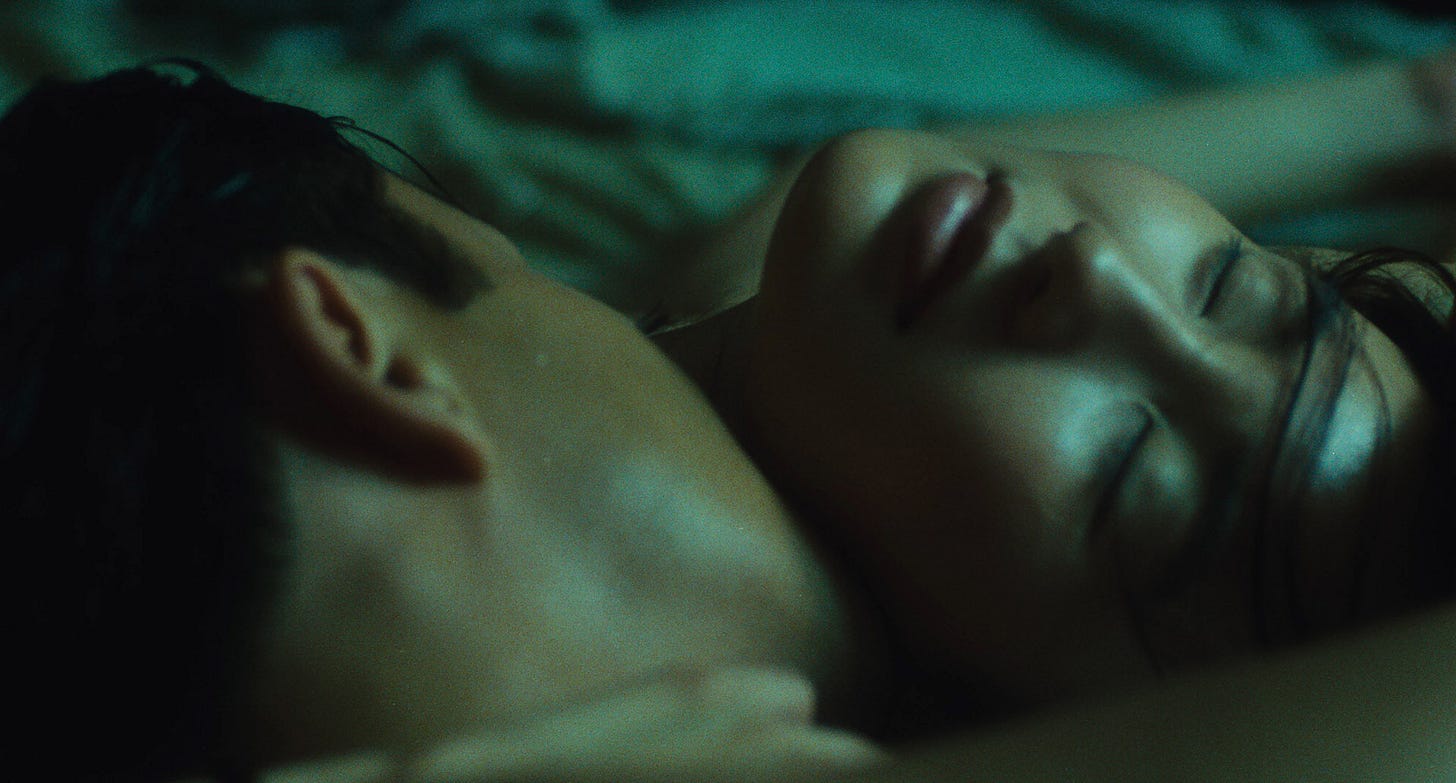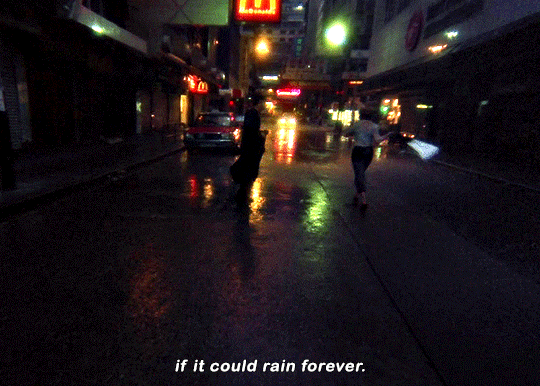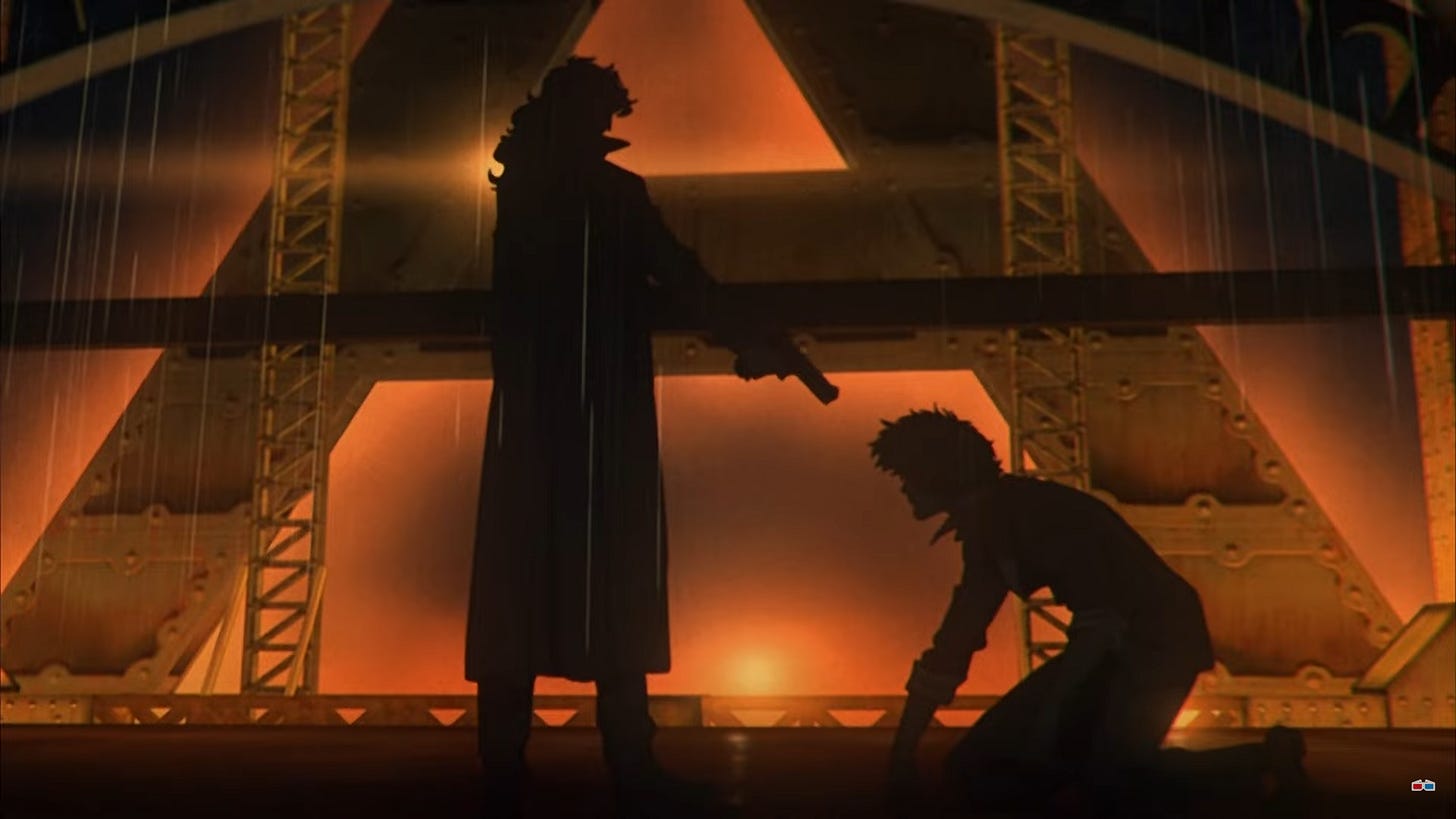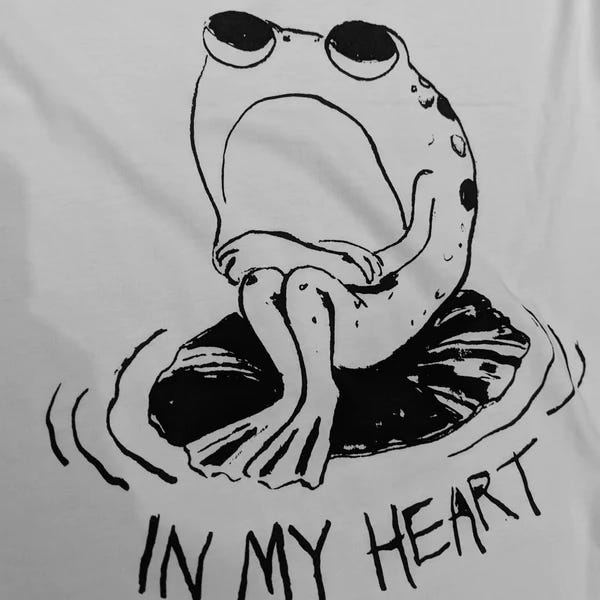Session #2: 私の心に雨が降っている “Raining In My Heart"
As tears go by from our eyes, so too is rain shed from the sky.
A most physical means of setting the mood, rain works to be an ever-powerful phenomenon in both the worlds of Cowboy Bebop and the films of Wong Kar-Wai.
As the subtitle to my header mentioned, I liken rain to the tears of the gods. A literal manifestation of the mood and atmosphere a creator seeks to project onto the medium, via condensation and downpour.
Rain within the context of WKW and Cowboy Bebop typically acts as a means of “setting the stage”.
Whether that be for a confrontation, a crossroads decision, or even a flashback, it works to signal the beginning and or end of a status quo.
*SPOILERS FOR COWBOY BEBOP*
Sometimes Less is More
As opposed to WKW, Bebop uses the atmospheric phenomenon in a far more limited capacity. Heightening the weight of the impact of the scenes on screen.
Take for example the usage of rain in the sequences between Spike and Julia across the series.
The last time they see each other prior to the start of Bebop (the flashback sequences), is a rainy day, just like their reunification. Both Spike in Session #1, and Julia in Session #25, are first introduced with droplets falling from the sky.
In fact, the moment Julia dies is the moment the rain breaks. Almost as if the two can only co-exist in a world where the rain never ends.
Session #5, “Ballad of Fallen Angels”, an episode that features further insight into Spike’s past with Julia and Vicious, even has the track titled, “Rain”, play as the main confrontation theme.
The melancholy and doom and gloom provided by the drops of water, create an undeniably sullen and yet beautiful atmosphere.
It hints to the audience that a thematically significant sequence is to occur.
The only other scene where rain is used besides in the Cowboy Bebop movie, is the flashback sequence in Session #10 where Jet recalls how his old flame ran out on him, many years ago.
This sparse usage perfectly fits into the blending of genres and styles Bebop takes to.
Wherein most episodes you can find the crew in some desert or neon-filled landscape, and once in a while you get a drip-drop gothic grey world.
The Comfort of Renewal
With Wong Kar-Wai however, the rain is an active participant in the plot, working even more explicitly in the favor of the creator’s wishes.
*SPOILERS FOR WONG KAR-WAI MOVIES*
The sequences force characters to either seek shelter, and interact with each other, or aid them in making a decision that will forever change the course of the film.
Days of Being Wild, WKW’s sophomore directorial outing, perfectly exemplifies the former, with much of the romance and entangling drama occurring due to the characters being stuck inside all day, due to the constant tropical downpour.
Their close proximity to each other, and inability to leave, force the characters to bond and ultimately consummate their tensions with one another as a result.
For the latter, in terms of making a change, the pre-eminent example in WKW’s filmography is certainly that of Chungking Express.
Wherein prior to their meeting, Faye decides to suddenly ditch Tony Leung, due to her curiosity for the California sunshine, as opposed to the rainy Hong Kong.
Fallen Angels, In the Mood for Love, and even Wong’s directorial debut, As Tears Go By, all feature a mix of both.
The Killer and Blondie, as well as Mr. Chow and Mrs. Chan, and even Wah and his ex-girlfriend, (the romantic duo of the three films), all end up spending their most intimate experiences with one another, whilst having to find shelter from the rain.
But just as the rain is merely temporary, their romances are just the same.
The Killer ultimately leaves Blondie behind before his final contract. Mr. Chow heads for Singapore the night the rains finally end. And Wah after finding his ex-gf pregnant and married, decides to pursue his cousin Ngor instead.
Baptism Via Atmosphere
Taking a page from Wong’s book, the Cowboy Bebop movie, Knockin’ on Heaven’s Door, makes use of rain in a similar capacity, with its presence being a literal plot point in the film.
*SPOILERS FOR THE COWBOY BEBOP MOVIE*
As a means of distributing the vaccine en masse to counter the nano-machines, the Bebop crew decide to use the weather as a means of raining down salvation to the city.
Spike and Vincent (the antagonist of the film) meanwhile duke it out in a hand-to-hand fight scene for the ages, with the rain accentuating every punch, kick, scratch, and grab the two go for.
The fight ends with Vincent getting shot by his old love, Elektra, the rain still trickling down. And in his final moments, he has a brief sense of repose.
As if the rain cleansed him of his mire, allowing him to recall and exchange his final words. Just as Vincent passes on from the world, so do the dark clouds of the rain.
“Raining In My Heart”
Buddy Holly’s 1956 heartbreak classic, this titular track by the bespectacled rocker is an ode to all suckers on both sides of the Mississippi. A simple almost Chet Bakerian love ballad, it details the forlorn misery of a heartbroken youngster.
The song features wonderfully melodramatic orchestral backing, accompanied by Buddy’s woeful vocals, which is only further enhanced by the pitifully adolescent lyricism of the pop couple songwriting team, Felice Bryant and Boudleaux Bryant.
Tonally and thematically the track is rather perfectly in line with the oldie crooner music choices of Wong Kar-Wai.
I truly don’t think anyone would bat an eye if this song was featured in the soundtrack of In the Mood for Love or Happy Together. It plays to the melancholic tendencies his song choices have, and even timeline-wise fits in with his 60s period pieces.
Historically too this could fit with the Bebop-verse considering how culturally significant Buddy Holly was in the ‘50s. It wouldn’t at all be out of place if Jet referenced him in his musical musings about Rock or Blues, Charlie Parker, etc.
Just a perfectly happy-sounding sad song, that meshes well with both Bebop and WKW.
“The sun is out, the sky is blue. There's not a cloud to spoil the view. But it's raining-raining in my heart.”




